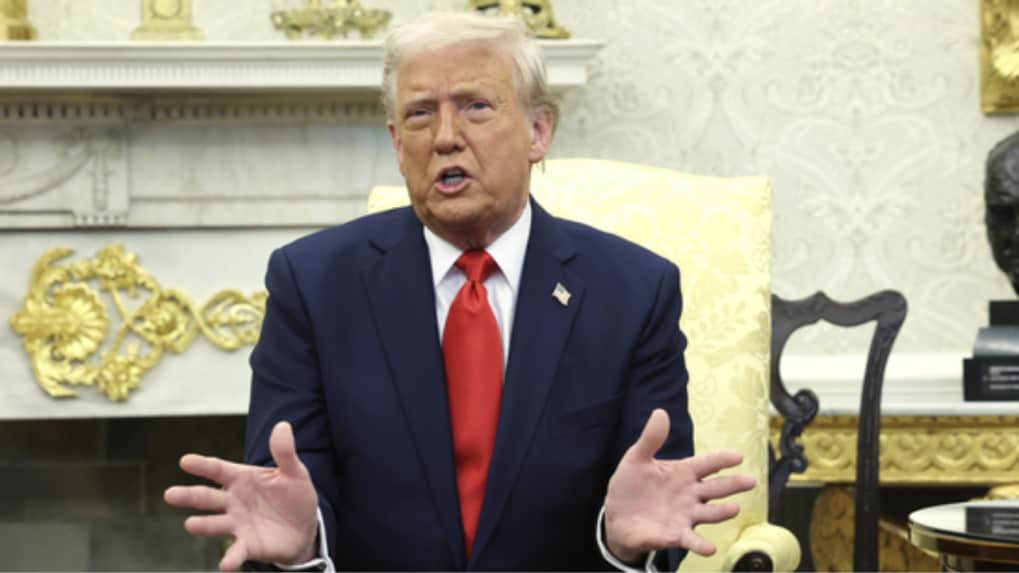Advertising
From Pink Slips to Silent Sidelining: Inside adland’s layoff and anxiety crisis

President Donald Trump has confirmed that the United States will move forward with a sweeping 100% tariff on all movies produced outside the country, in a move that could drastically reshape Hollywood’s global operations and further escalate trade tensions.
The announcement, made Monday on Trump’s Truth Social account, formalises what the president first signaled in May when he authorised the Commerce Department and the U.S. Trade Representative (USTR) to begin exploring duties on foreign films. At the time, Trump framed the measure as both an economic safeguard and a national security necessity.
“The American movie industry is dying a very fast death,” Trump warned earlier this year, alleging that rival nations were deliberately undermining U.S. cultural exports. Calling it a “concerted effort by other Nations and, therefore, a National Security threat,” he claimed the issue was about more than money: “It is, in addition to everything else, messaging and propaganda!”
On Monday, he sharpened that message. “The movie-making business of the U.S. has been stolen by other countries like candy from a baby,” Trump declared, singling out California’s entertainment sector. “California, with its weak and incompetent Governor, has been particularly hard hit! Therefore, in order to solve this long time, never-ending problem, I will be imposing a 100% Tariff on any and all movies that are made outside of the United States.”
Trump said the goal was to bring production back home. “We want movies made in America again!” he posted. “The tariffs will level the playing field and ensure studios operate here instead of chasing tax breaks and cheap labor abroad.”
Industry Pushback
The policy, however, has sparked immediate pushback from industry experts who warn it could hurt Hollywood more than it helps. Major U.S. studios, including Disney, Paramount and Warner Bros., often film abroad to reduce production costs. Analysts note that the new tariffs could drive up budgets, strain international partnerships, and complicate global distribution networks.
Stock markets reflected those jitters on Monday morning. Shares of Netflix slipped 1.4% in premarket trading, while Warner Bros. Discovery fell 0.6%.
Wider Trade Strategy
The film tariffs are part of a broader protectionist agenda Trump has unveiled in recent weeks. Just last week, he introduced sweeping import duties covering everything from pharmaceutical drugs to kitchen cabinets.
“I’m putting a 100 per cent import tax on pharmaceutical drugs unless the companies are building plants right here in the United States,” Trump said. “Breaking ground, under construction, that’s the deal. No exceptions.”
The new tariffs, scheduled to take effect October 1, also include a 50% duty on kitchen cabinets and bathroom vanities, 30% on upholstered furniture, and 25% on heavy trucks.
In a separate post on Monday, Trump signaled further action on furniture manufacturing. “In order to make North Carolina, which has completely lost its furniture business to China and other countries, GREAT again, I will be imposing substantial tariffs on any Country that does not make its furniture in the United States. Details to follow,” he wrote.
The move comes at a fragile time for the U.S. entertainment sector. Hollywood has been hit hard by changing consumer habits, with streaming platforms drawing audiences away from theatres. Box office sales have dropped sharply over the past few years, leading to production cuts and a leaner release calendar.
Labor unrest has also taken a toll. The 2023 Writers Guild and actors’ strikes cost the industry an estimated $5 billion, according to trade groups, and many of the lost jobs have yet to return.
For Trump, though, tariffs are presented as the cure. “We want American workers making American films, right here on American soil,” he posted. Whether the industry agrees — or can survive under such conditions — remains an open question.
From purpose-driven work and narrative-rich brand films to AI-enabled ideas and creator-led collaborations, the awards reflect the full spectrum of modern creativity.
Read MoreLooking ahead to the close of 2025 and into 2026, Sorrell sees technology platforms as the clear winners. He described them as “nation states in their own right”, with market capitalisations that exceed the GDPs of many countries.